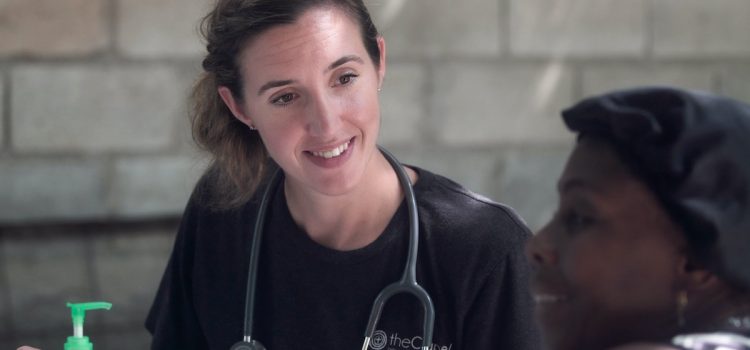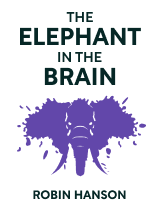

This article is an excerpt from the Shortform book guide to "The Elephant in the Brain" by Robin Hanson and Kevin Simler. Shortform has the world's best summaries and analyses of books you should be reading.
Like this article? Sign up for a free trial here .
Do doctors really care about their patients? How much of health care is about the appearance of care as opposed to substantive help?
In The Elephant in the Brain: Hidden Motives in Everyday Life, Kevin Simler and Robin Hanson say that many of our social systems are driven by ulterior motives. That means that some of our most important institutions—including health care—are built around goals we’re not even aware of.
Keep reading for the authors’ argument on institutional hidden motives.
Health Care Lets You Look Caring
Do doctors really care about their patients? Undoubtedly, medical professionals exhibit genuine concern. However, the authors argue that medicine isn’t just about healing—it’s also about showing conspicuous care. They give the example of a mother kissing her toddler’s scraped knee to “make it better.” This practice has no physical healing power, but it’s a social ritual that shows the mother cares and lets the child feel cared for.
Simler and Hanson argue that this ritual extends into our adult lives. For example, they point out that, when someone gets sick or hurt, it’s common for friends, family, and community members to bring that person food. They argue that bringing food signals that you care—as with charity, it advertises your compassion and selflessness. Meanwhile, receiving food broadcasts your popularity and support (conversely, if nobody helps you when you’re in need, that doesn’t speak well to your status in the community).
Simler and Hanson further argue that our professional health care systems function as a larger-scale conspicuous care ritual that leads to medically inferior decisions. They argue that this is why patients and doctors seem to prefer active interventions over watchful waiting (monitoring a patient’s status but not intervening unless symptoms worsen) or nonmedical preventative strategies like lifestyle changes. They suggest we want our doctors to be “doing something” so that we know they care about us (and likewise that doctors want to show their caring via active interventions).
Likewise, they argue that this is why, in end-of-life situations, patients and their families choose aggressive interventions (which come with great cost and limited efficacy) over palliative care. Palliative care focuses on managing a patient’s symptoms and maintaining or improving quality of life; it can be used in conjunction with curative treatments or, in the case of terminal disease, it can include measures like hospice care. By contrast, aggressive treatment means, for example, continuing chemotherapy and drug treatments (which typically have strong side effects) and performing surgery even when there’s no hope of curing a disease.
Simler and Hanson argue that patients (or their family members) often opt for the aggressive option because it sends the message that you care about your life (or your loved one’s life). They say that choosing palliative care—even when it’s objectively the better option—seems to send the message that you’re okay letting yourself or a loved one die.
| An Alternative Explanation of Unnecessary Health Care Simler and Hanson’s account doesn’t include a number of psychological and practical explanations for some of the phenomena they discuss, none of which have anything to do with signaling. For example: Patients’ decisions about their own health care could be influenced by factors as subtle as the order in which they receive information. For example, you’ll probably be less inclined to get a procedure if you hear about its risks before hearing about its benefits. Similarly, if a doctor presents options for active intervention before presenting an option like watchful waiting, that might bias you toward the active option. End-of-life patients might opt for treatment rather than palliative care because they’re afraid of death—or don’t want to admit that they’re dying. Similarly, they might opt for treatment because their doctor is uncomfortable discussing end-of-life options, resulting in patients having unclear understandings of their situations. Doctors might pursue treatments based on incorrect assumptions about their patients’ preferences. For instance, when treating breast cancer, a doctor might choose treatments designed to preserve the breast even though that might not be a priority for the patient. Doctors sometimes override patients’ advance directives (written instructions about when and how a doctor should try to save a patient’s life) to provide life-saving care the patient didn’t want. The reasons for this aren’t clear, but experts suspect it’s in part because doctors are trained to take action, not to sit by. Doctors often order unnecessary tests to cover their bases and manage risks. Doctors and patients alike are uncomfortable with uncertainty, and testing gives the (often false) impression of knowledge. Plus, doctors fear being sued for malpractice if a patient gets sick or dies from something that could have been caught by a test. Overall, it seems there is indeed an elephant when it comes to health care—but rather than being about hidden motives, this elephant has to do with patient-doctor communications (and fear of lawsuits). Taming the elephant: To minimize the chances of unnecessary tests or procedures, have open and honest conversations with your doctor—and be aware of how the illusion of control might bias you in favor of testing and active interventions. |

———End of Preview———
Like what you just read? Read the rest of the world's best book summary and analysis of Robin Hanson and Kevin Simler's "The Elephant in the Brain" at Shortform .
Here's what you'll find in our full The Elephant in the Brain summary :
- How human behavior is driven by selfish motives
- Why your own brain is hiding your intentions from you
- Why the purpose of education is to certify future employees






